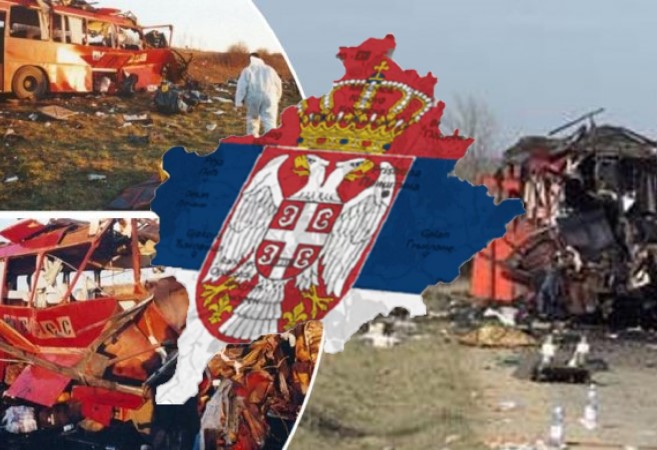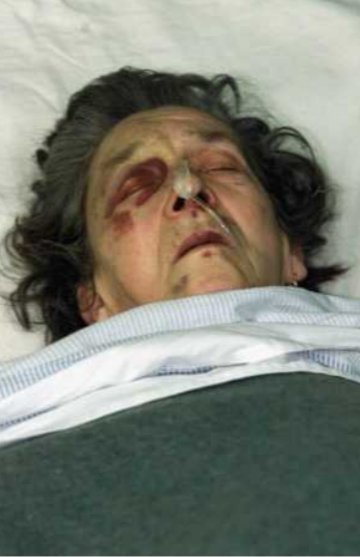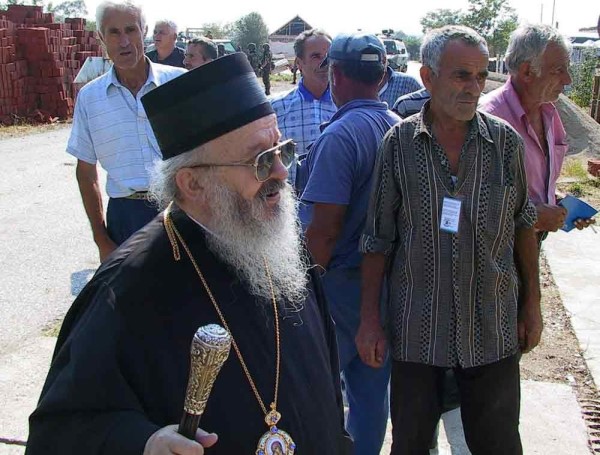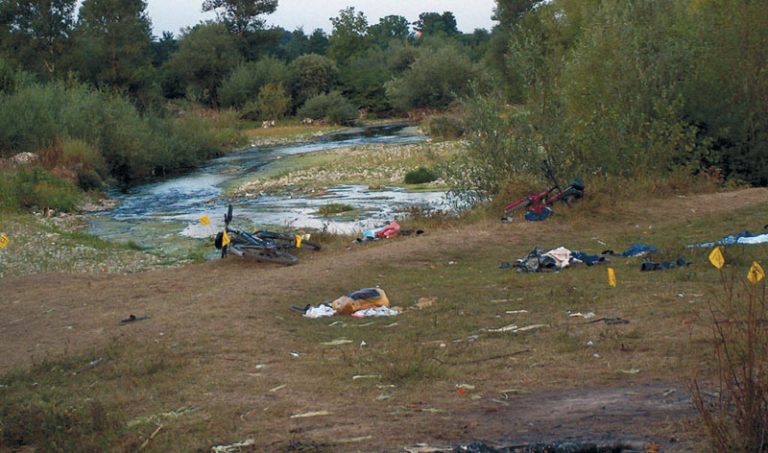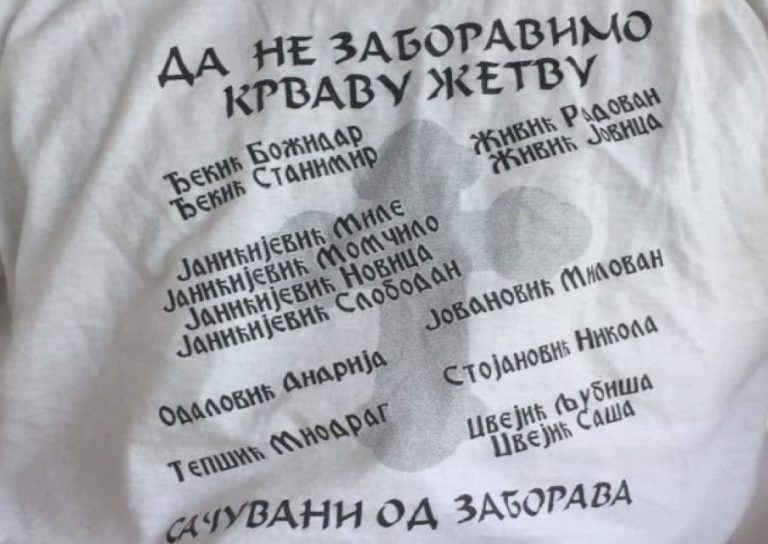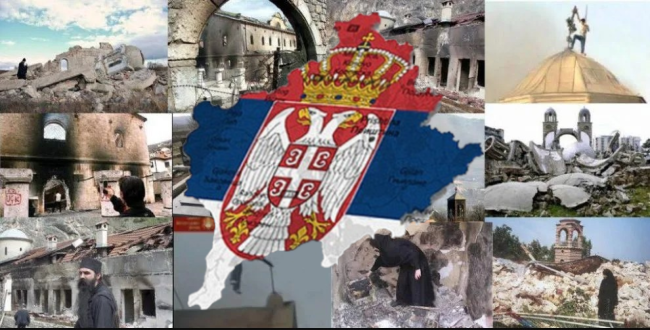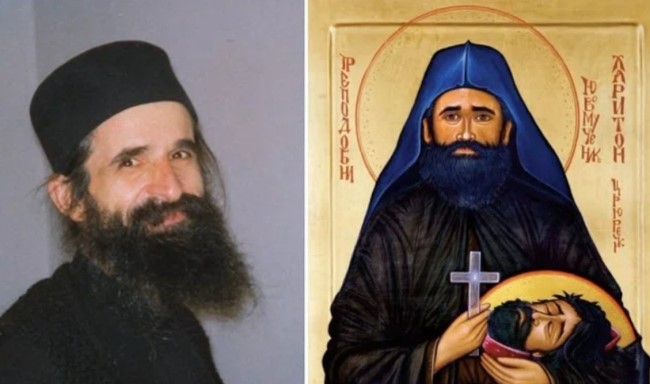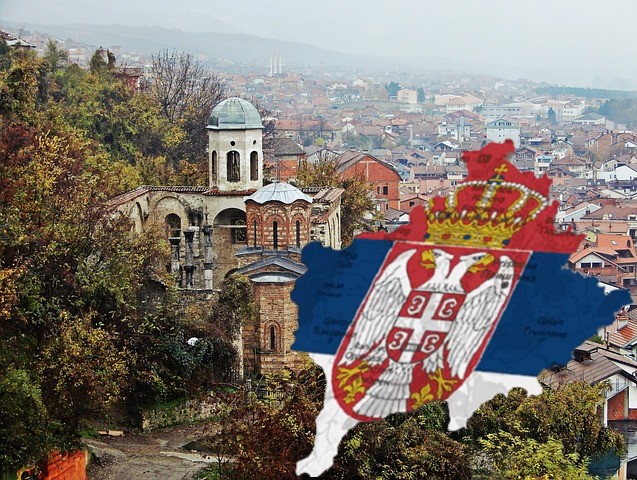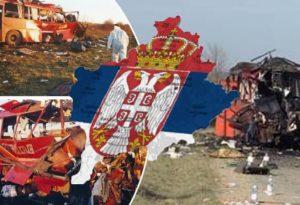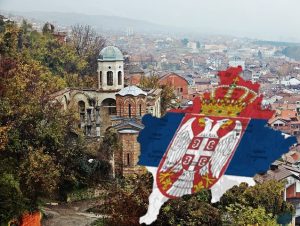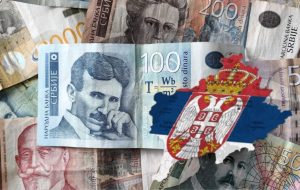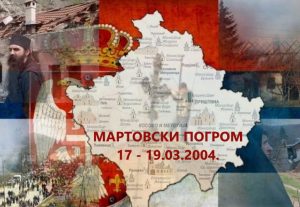
BRUSSELS AGREEMENT
PEACE AND SECURITY
BRUSSELS AGREEMENTS BETWEEN KOSOVO AND SERBIA
A Quantitative Implementation Assessment
Shpetim Gashi and Igor Novaković December 2020
→
Pristina and Belgrade negotiated in Brussels for over 10 years about 50 documents, concluded in 21 agreements, and about 80 percent of those have been implemented.
→
The Brussels dialogue did not conclude the Kosovo-Serbia conflict, but it did resolve a number of concrete problems, consequently contributing to the normalization of relations between the two societies.
→
A new negotiation process cannot progress without addressing the rather intractable status dispute. The EU and the US will have to continue searching for a peace agreement model that satisfies both sides.
When some say Serbia and Kosovo reached 33 agreements, and others say 36 or 47, they are all in some way correct Some consider each of the about 50 documents that the parties negotiated in Brussels as agreements. But not all of these documents are agreements. Some are agreement modifications, revisions, upgrades, and implementation plans. For instance, the Freedom of Movement Agreement consists of three documents: the core agreement signed in 2011 and two 'revisions' in 2016, and 2017. There are also about 18 certificates-out of a total of 52-that were mutually recognized but were negotiated at different stages of the dialogue. In this paper, for example, all the certificates are included under the Chambers of Commerce Agreement, since the chambers were largely in charge of negotiating them. But the ADR certificate agreement was negotiated separately and is considered as a separate agreement.
This paper is based on a detailed review of about 50 official dialogue documents consisting of about 150 pages, annual progress implementation reports of Belgrade and Pristina, and other official documents. First, the core points of the agreements were identified in this review process. Second, the implementation of the identified core points was assessed, and divided into three categories: a) implemented (about 80-100 percent), b) largely implemented (about 50-80 percent), and c) partly implemented (about 30-50 percent).
This paper has grouped the Brussels documents into 21 core agreements. How did we do it? By grouping the individual documents into area agreements. For instance, the agreements on police integration, civil protection integration, and the regional police commander in Kosova's North-three agreements-have all been grouped into one agreement: Integration of Serb Security Structures in Kosovo's North, be- cause they all fit into the security area and were all negotiated at the same time in Brussels. But, for instance, the Mitrovica Bridge agreement has not been included in the Freedom of Movement, because, in addition to its freedom of movement elements, it also includes a provision on a boundary demarcation' between South Mitrovica and North Mitrovica, and it was also negotiated as a separate agreement.
Of the total of 21 agreements, 10 agreements have been implemented, 6 agreements have been largely implemented, 4 agreements have been partly implemented, and 1 agreement has not been implemented. In total, about 80 percent of the Brussels agreements have been implemented.
Given the difficulty of finding all the dialogue documents, it is possible that we may have missed some, but we could say with high certainty that this paper includes about 90 percent of the documents. The report also does not assign blame to any actor, nor does it look into reasons why some agreements have been implemented and others have not. It neither assesses the quality of the agreements. It simply looks at what has been agreed and how much of the agreed has been implemented
| 1. Freedom of Movement (2011, 2016, 2017) | Largely implemented |
| a. Recognize ID cards. ID cards can be accompanied by written 'entry/exit' documents. Kosovo opted not to apply entry exit documents. | Implemented |
| b. Recognize driver licenses. | Implemented |
| c. Recognize Kosovo 'KS' car license plates | Implemented |
| d. Kosovo "RKS plates are replaced by Serbian temporary plates | Implemented |
| e. Residents in the Kosovo's north can register their cars in Kosovo's system without paying extra duties.1 | Implemented |
| f. Recognize 'RKS' car plates and state symbols (RKS, SRB) are covered with white stickers2 | Not implemented |
| 2. Civil Registry books (2011) | Implemented |
| a. Establish a fully reliable civil registry in Kosovo. | Implemented |
| b. Belgrade will offer scanned copies of the original civil registry books to Pristina | Implemented |
| c. EULEX will certify the copies | Implemented |
| 3. Cadastral Records (2011) | Partly implemented |
| a. Establish a fully reliable cadaster in Kosovo. | Partly implemented |
| b. Belgrade will offer scanned copies of the original Kosovo cadaster records to Pristina3 | Partly implemented |
| b. Belgrade will offer scanned copies of the original Kosovo cadaster records to Pristina3 | Largely implemented |
| a. Joint, integrated, single and secure posts will be located within a common area of IBM crossing points where both sides conduct respective controls | Largely implemented |
| b. A balanced presence of police and customs officers will be present | Implemented |
| b. A balanced presence of police and customs officers will be present | Implemented |
| d. Kosovo and Serbia agree to construct permanent premises in crossings points. The European Commission will look into supporting financially the establishment of the premises.4 | Partly implemented |
| e. Both sides commit to harmonize their legislation, especially the IBM concept, in line with that of the EU | Partly implemented |
| f. Both sides will exchange information to prevent criminal activities. | Partly implemented |
| 5. Customs stamps (2011) | Implemented |
| a. Free movement of goods in accordance with CEFTA5 | Implemented |
| b. Serbia accepts 'Kosovo Customs stamp | Implemented |
| c. All accompanying documents have to use "Kosovo Customs stamps | Implemented |
| 6. University diplomas (2011, 2016) | Largely implemented |
| a. Recognize university diplomas issued by accredited higher education institutions (BA, MA, PhD) in Serbia and Kosovo6 | Largely implemented |
| b. Agree to recognize the diplomas of elementary, secondary, and vocational education.7 | Partly implemented |
| c. The European University Association (EUA) supported by SPARK, a Dutch NGO, will certify the university diplomas.8 | Implemented |
| d. According to a revised agreement revision of 2016, Serbian and Kosovo relevant institutions are in charge of certification directly.9 | Implemented |
| e. Belgrade and Pristina should adopt legislative changes to accommodate the agreement provisions. | Not implemented |
| 7. Regional representation and cooperation (2012) | Largely implemented |
| a. Kosovo*10 is the only denomination to be used within the framework of regional cooperation. The footnote will read: "This designation is without prejudice to positions on status, and is in line with UNSC 1244 and the ICJ Opinion on the Kosovo declaration of independence" | Largely implemented |
| b. Kosovo* participates on its own account and speaks for itself at all regional meetings | Implemented |
| c. The regional organizations referred in this agreement are intergovernmental organizations. "Regional meetings" includes meetings of these organizations. It also includes meetings with EU institutions in the context of the European agenda. | Implemented |
| d. These arrangements are adopted on an interim basis.11 | Not implemented |
| 8. Association/Community (2013, 2015) | Not implemented |
| a Kosovo establishes an association of ten Serb-majority municipalities | Not implemented |
| b. The Association/Community has an "overview" on areas of education, health, economic development and urban planning.12 | Not implemented |
| c. The Association/Community is established according to Kosovo law.13 | Not implemented |
| d. Belgrade and Pristina agreed on a number of principles in 2015.14 | Not implemented |
| 9. Integration of security structures in Kosovo's north (2013) | Implemented |
| a. Kosovo Serb police officers (337) serving in Serbian system in the four Serb-majority north municipalities will be integrated into the Kosovo police.15 | Implemented |
| b. Members of Civil Protection (533) will be offered a place in equivalent Kosovo structures. Integration of civil protection members will be done in line with the Kosovo Law on Civil Service.16 | Implemented |
| c. The ‘observation points' in the north manned by Civil Protection members will be removed. | Implemented |
| d. A police regional commander for the four north Serb-majority municipalities will be selected. The commander shall be Kosova Serbs He will be nominated by the Ministry of Interior for a list provided by the four mayors on behalf of the Association/Community. | Implemented |
| e. The composition of the police force in the north will reflect the ethnic composition of the population (about 90 percent should be Serbs) | Implemented |
| e. The composition of the police force in the north will reflect the ethnic composition of the population (about 90 percent should be Serbs) | Implemented |
| a. Two crossing points-burned down in 2008 following Kosovo's independence declaration-in the north will be reestablished and collect customs duties according to Kosovo law. | Implemented |
| b. Companies in the four north municipalities will be able to use the existing registration documents (Serbian) as proof to register in Kosovo. | Implemented |
| c. A Development Fund for the north will be established. The Fund's managing board will consist of three people one Serb representative from the north, one representative from Kosovo's institutions, and one representative from the EU Special representative office in Kosovo. Decisions will be based on consensus, but if consensus is not possible repeatedly, the EU representative vote could be decisive. Customs duties collected in the two crossing points in the north-Jarinje and Brnjak-will be transferred to the Fund's account and will be used only for projects in the north. They will not go into Kosovo's central budget. | Implemented |
| d. Kosovo customs officers should have unrestricted access to the border crossings in the north. | Implemented |
| 11. Integration of judicial authorities in the north (2013, 2015) | Implemented |
| a. The judicial authorities in Kosovo's north will be integrated into and operate within Kosovo's legal framework. | Implemented |
| b. There will be one Basic Court and one Basic Prosecution Office for the Mitrovica region and multiple premises for the Mitrovica Basic Court. | Implemented |
| c. The Mitrovica Basic Court premises in Mitrovica north will host a majority of Kosovo Serbs. | Implemented |
| d. The Mitrovica Basic Court premises in Mitrovica North will comprise of a) the division of the Court of Appeals in Mitrovica, which will be composed of 5 Kosovo Serbs and 2 Kosovo Albanian judges, b) the department for serious crimes for the entire Mitrovica region, which will be composed of 4 Kosovo Serbs and 4 Kosovo Albanian judges, and c) the part of the general department adjudicating over all criminal offenses for Mitrovica north, Mitrovica south, and Zvecan. | Implemented |
| e. The President of the Mitrovica Basic Court is a Kosovo Serb from Kosovo's north. | Implemented |
| f. The chief prosecutor of the Mitrovica Basic Prosecution Office is a Kosovo Albanian. The premises are located in the Mitrovica North Administrative Office | Implemented |
| g. A Kosovo Serb will head the division of the Court of Appeals sitting in Mitrovica North. The Vice President of the Court of Appeal will be a Kosovo Serti sitting in Pristina | Implemented |
| 12. Kosovo elections in the north (2013) | Implemented |
| a. Municipal elections shall be organized in the north municipalities in accordance with Kosovo law.17 | Implemented |
| 13. Belgrade and Pristina do not block each other in EU path (2013) Partly implemented | Partly implemented |
| a. Neither side will block, or encourage others to block, the other side's progress in their respective EU path.18 | Partly implemented |
| 14. Telecommunications (2013) | Largely implemented |
| a. Kosovo shall be allocated a 3-digit dial code from the ITU. | Implemented |
| b. A full license for fixed telecommunications services will be issued to a new company, which will be a subsidiary of a Serbian company registered in accordance with the Kosovo regulatory framework. Kosovo will give the new company a temporary authorization. This temporary authorization will not expire before January 2015, when Kosovo issues a new full, unrestricted, mobile telephone license as a result of a tender/auction".19 | Not implemented |
| c. Postal services were not part of these discussions but both sides agree to address later.20 | Not implemented |
| 15. Liaison offices (2013) | Implemented |
| a. Pristina and Belgrade exchange liaison officers. | Implemented |
| 16. Chambers of commerce (2016) | Partly implemented |
| a. Promote arbitration, mediation, and other forms of alternative dispute resolution as a tool to settle commercial disputes. Exchange information and publications related to commercial arbitration and other forms of mediation by e-mail or printed form. | Not implemented |
| b. Establish institutional relations between the two chambers through exchanging representatives: a Serbian representative is posted in Kosovo's chambers by January 2014 and vice versa. | Not implemented |
| c. Harmonization of certificates.21 | Partly implemented |
| 17. Energy (2013, 2019) | Revised and implemented |
| a. Kosovo Transmission Operator (KOSTT) becomes member of the European Network of Transmission System Operators (ENTSO-E). | Revised |
| d. A new electricity company will be established under the Kosovo legal and regulatory framework to supply electricity and provide distribution services (such as billing, collection, maintenance and physical connection of new customers) to customers in the four Serb majority municipalities in the north, and will be able to buy and sell power on the open market. | Revised |
| e. The employees of JP Elektrokosmet will either be incorporated into this new company or might be offered employment with KEDS. | Revised |
| f. KOST will reconnect the 110 KV lines to Valac/q. The current operators at the Valac/q substation will respect instructions from the Kosovo dispatch center. | Revised |
| g. Both parties agree to try to find a common settlement solution as regards KOSTT's claims and EMS claims. Should it not be possible to reach a common settlement within 6 months, both parties agree to submit these claims to international arbitration. | Revised |
| In 2019, the EU revised the original agreement and went ahead with the implementation without Belgrade. It took three steps. | Implemented |
| a. The Serb company was offered the license in line with the Kosovo law. The company rejected the offer. b. After the rejection, members of ENSCO-E's Regional Group Continental Europe (RGCE) voted on a modification of the original Brussels Energy Agreement. The RGCE members drafted the new agreement that removed the registration of Serb company from the agreement, so leaving KOSTT in charge of Kosovo's entire territory to supply and manage energy. Serbia appealed the decision but lost in the voting process. RGCE members unanimously rejected Serbia's request to review the changes in the new draft agreement. c. RGCE members voted on the modified agreement. A majority was in favor, so KOSTT became an equal member of ENTSCO-E | |
| 18. Official Visits (2014) | Largely implemented |
| a. Respective parties will notify visits of their officials to the other party.22 | Largely implemented |
| b. Notification is needed for the following categories of officials: president, prime minister, deputy prime ministers, speaker of the parliament and ministers of internal affairs, foreign affairs and defense. For this category the notification must be done at least 72 hours in advance and any objections must be raised within the first 48 hours. The second group consists of all other ministers, deputy speakers of the parliament, directors of governmental offices and security related agencies, presidents of the constitutional and supreme courts, state prosecutor as well as all other persons, such as religious leaders, that are under regime of close protection. For this category the notification must be done at least 48 hours in advance and any objections must be raised within the first 24 hours.23 | Largely implemented |
| 19. Mitrovica bridge (2015) | Partly implemented |
| a. Both sides asked EU to 'revitalize the Mitrovica Bridge. The work on the bridge begins in October 2015 and ends in June 2016 when the bridge is open for all traffic.24 | Partly implemented |
| b. The administrative boundary dispute between Mitrovica and North Mitrovica is resolved by October 2015. | Not implemented |
| 20. Motor vehicle insurance (2015) | Implemented |
| a. Association of Serbian Insurers and the Kosovo Insurance Bureau responsible for vehicle insurance mutually recognize motor vehicle insurances. | Implemented |
| b. Pay damages of accidents caused by vehicles in the jurisdiction of each party. | |
| 21. Mutual recognition of ADR certificates (2016) Implemented | Implemented |
| a. Reciprocal recognition of ADR certificates for dangerous products. | Implemented |
1 Residents in Kosovo's north Serb-majority municipalities continue to drive with Serbian car plates, but those that registered their cars in Kosovo* system did not pay extra duties.
2 This element of the agreement has not been implemented. "RKS' plates are still replaced with Serbian plates. Initially, Pristina asked for a delay of the original implementation date as it had some tendering issues, and what happened afterwards is not clear. It is not clear which side is delaying implementation.
3 Documents included cadastral records of private property, private commercial property, and private church property.
4 Both sides agreed on the premise design and completed the land appropriation procedures. However, only the Merdare premise is completed The European Commission has secured some funding but not enough to complete all crossing points premises. Serbia and Kosovo have not offered co-funding.
5 The free movement of goods continues to faces political hurdles from time to time-Pristina applying tariffs and reciprocity while Belgrade not recognizing all Kosovo documents.
6 Of 1,591 applications, 1,443 diplomas were certified by the January 2019, with another 85 under consideration and 45 rejected.
7 Diplomas of elementary, secondary and vocational schools and PhD degrees are frequently neglected.
8 The EUA's certified around 400 diplomas during its three-year mandate.
9 The 2016 revision of the recognition process has been a lot more efficient. Fewer than 500 diplomas were recognized from 2011 to 2016, while from 2016 to 2019 about 1,000 diplomas have been certified.
10 Kosovo has mainly used the ‘asterisk’ and the footnote in its participation in intergovernmental meetings. It no longer uses and most of the hosts, various international organizations, are fine with it, but not all.
11 These arrangements have not been revised since the original agreement.
12 The sides could not agree on the responsibilities of the Association/Community, with Pristina insisting that it can not have executive responsibilities while Belgrade claiming that 'executive powers’ were agreed in Brussels.
13 Pristina and Belgrade agree that the Association/Community should be established according to Kosovo law, but while Pristina says according to Kosova's existing law, Belgrade says according to 'Kosovo's future law, recommending that the e existing law should be revised to accommodate executive powers for the Association/Community.
14 Kosovo's Constitutional Court ruled that the Association/Community is legal but cannot have executive powers
15 Serb police officers (292) joined Kosovo's police force
16 533 civil protection force members joined equivalent Kosovo institutions. Initially, Belgrade offered a list of 751 members. Pristina offered 483 employment positions. They agreed on 533.
17 All Kosovo elections-local and national-were held in all four municipalities in the north since 2013.
18 Belgrade and Pristina formally support each other's path towards EU integration, but actions do not always reflect their words
19 A full license for fixed telecommunications services has not been issued to a new company, a subsidiary of a Serbian company Initially, the company was reluctant to register in accordance with the Kosovo regulatory framework. It is not clear what happen afterwards.
20 Pristina and Belgrade have not regulated postal services.
21 There are 52 certificates that need to be harmonized by Kosovo and Serbia. So far only 18 have been harmonized. Kosovo's and Serbia's Chambers of Commerce have negotiated the certificate harmonization within the Brussels dialogue. For instance, they have harmonized certificates on exporting goats and sheep for breeding, but not certificates on breeding cattle.
22 Belgrade and Pristina largely notified each other for the visits of their officials but there were times when such visits took place without notifications. There was confusion about what constitutes 'official' and 'private visit. Sometimes officials were banned from entering even though they claimed they were visiting in private capacity
23 Notification was given for the agreed categories of officials. However, sometimes requests were rejected due to political tensions.
24 The work on the bridge began but has not been finished and the bridge is not open for traffic.
The Brussels dialogue did not resolve the Kosovo-Serbia sta- tus dispute, but it did solve a number of concrete problems and laid out some critical foundations for negotiating a comprehensive normalization agreement. Belgrade and Pristina face a series of choices in how they want their relations to be and with each choice come both benefits and costs. The international community is searching for a win-win solution.
The Kosovo-Serbia dialogue is a relatively success story. Perhaps not if looking at it in isolation, as it could have certainly been done more, better, and faster, and so the criticism to the process is often founded. But if we compare it with other conflicts of similar nature or 'frozen conflicts, this is a good case: the dialogue helped transform the Kosovo-Serbia conflict from 'a frozen conflict into a melting one."
And unlike other frozen conflicts, the Kosovo-Serbia dispute is rather interesting and at times entertaining. We have two entities that do not recognize each other, do not seem to like each other very much, but are very interested in becoming friends-or at least pretend to become friends-because they want to join this exclusive club called European Union, and this club no longer accepts new members with open disputes
Pristina and Belgrade have some solid political will and a lot of self-interest in becoming friends, at least formally. Now they have to figure out a way to resolve their disputes, a way that ideally satisfies both sides. The core issue is status. The Brussels dialogue rather successfully kept it under the carpet, but now it is becoming increasingly clear that no new process can progress without addressing the status head-on.
Serbian President Aleksandar Vucic said that an easy fix would be recognition, but added that he will not do it. He has said many times that he will submit the case to the will of the people. Polls show that "the will of the people in Serbia and Kosovo does not support a breakthrough agreement that requires some bold compromises. So if an easy-fix' is not on the table, what would be a 'non-easy fix? Serbian officials say "everything but recognition." For Kosovo, there is 'no fix without recognition. The United States supports a solution with recognition. The European Union supports an agreement that concludes the conflict, but does not explicitly mention recognition, mostly because five of its members do not recognize Kosovo.
Serbian politicians say that the final deal should be some kind of a trade. Belgrade has something-recognition-that Pristina finds very valuable, and Belgrade has made it clear that it will not give it to Pristina for free. It wants something equally valuable in return. So if Kosovo gets recognition what can Serbia get? EU membership is mentioned most frequently. But Belgrade's favorite option seems to be a 'land for recognition option, whereby Serbia acquires Kosovo's four Serb-dominated municipalities in the north-about 12 percent of Kosovo's territory-but most of the international community opposes this option.
If a final agreement is not reachable, some suggest another intermediate deal-a type of a Brussels Agreement II. Among others, such an agreement would offer Serbia a fast-track EU membership and offer Kosovo membership in the UN. Kosovo feels that the UN membership would bring security guar antees that Serbia would not try to take Kosovo back in some hypothetical distant future scenario. But bringing on board other permanent UN Security Council members, especially Russia, is close to impossible.
Both Pristina and Belgrade agree that it is in their self-interest to find a solution. But there is currently a conflict between their present self-interest and long-term 'national interest," which both sides are having trouble to balance. Many argue that it is in Serbia's self-interest to conclude the Kosovo conflict through some form of relinquishment, but that would contradict the 'national interest' which holds that "Kosovo is an inseparable part of Serbia," and would probably make angry more people than the leadership can afford. On the other hand, many argue that it is in Kosovo's self-interest to agree to some form of 'normalization without recognition, but that would contradict its 'national interest of being legally recognized by the state it seceded from, and again, would probably make more people angry that the leadership in Pristina can afford. So it remains to be seen whether present self-interests will prevail over the old 'national interest', or the other way around. As this paper shows, present self-interest did prevail in the Brussels dialogue to a solid degree.
One of the biggest tangible self-interest is the economic benefit, especially for Serbia but also for Kosovo. On per capita bases, Kosovo is Serbia first import partner. A Kosovar imports about €150 euros per year from Serbia, and only about 50 from Albania, for instance. By comparison, a Russian imports only about €5 euros form Serbia. Or an Italian, Italy is the biggest importer of Serbian goods, imports only about 40 euros of Serbian goods. Normalization of relations would allow Serbia to preserve and to even expand its exports to Kosovo.
For Kosovo, Serbia used to be the main market until the war disrupted it. But now that many technical and political hurdles have been cleared off and Kosovo can again export to Serbia, it could reclaim some of the market share. For instance, Kosovo produces about 50 million liters of wine and brandy, and Serbia could become an attractive market for such produce.
However, non-economic factors such as identity and 'national interests’, as defined centuries ago, will remain powerful forces in determining the shape of a solution.
Even though Belgrade and Pristina do not yet agree on a solution, they do recognize the cost that the continuation of the conflict inflicts on both sides. The process is being prolonged also because Serbs and Albanians have very little experience in give-and-take and bargaining with each other. For the first time in the history of their relations, they are negotiating and signing agreements. But Pristina and Belgrade remain reluctant to advance beyond a comfortable position and take the risks required to reach a solution. Also, the constituencies in Serbia and Kosovo are not quite in the mood for some fundamental change in their relations, and they remain vulnerable to a lot of disinformation about the negotiations and an eventual compromise. As we have seen with the Brussels process, once the peoples' faith in dialogue is undermined, the dialogue stops working.
The conclusion of the conflict through some kind of peace agreement, unthinkable just a few years ago, is becoming inevitable though. And since the status quo is not favorable to either side, it is rational to expect that the political leaders will accept terms that might not be popular with their constituencies in the short term, but that would gain popularity once the benefits of the solution begin to become visible. The solution will be determined by all kinds of factors but the most important is the willingness for peace of the leaders in charge.
AUTHORS
Shpetim Gashi is vice president of the Council for Inclusive Governance, a U.S.-based international non-governmental organization. He also serves as regional manager for the Balkans at the Varieties of Democracy, a Sweden-based institute measuring democracy worldwide. He focuses on issues on governance and political development in countries in transition. He holds an MA in international affairs from Columbia University and a BA in political science from the University of Massachusetts Boston.
Igor Novaković is Associate in Serbia of the Council for inclusive Governance. He is author of a number of analyses, policy papers, and other documents on issues of international relations, security cooperation, interethnic dialogue, and minority integration. He holds a PhD in political science from the University of Belgrade and MA in International Relations from the University of Bologna.
IMPRESSUM
Fridrich-Ebert-Stiftung | Office in Belgrade Dositejeva 51 | 11000 Belgrade | Serbia
Доситејева 51 | 11000 Београд | Србија
Responsible:
Dr. Max Brändle | Director, Regional Office for Serbia and Montenegro
Phone +381 11 3283 285
www.fes-serbia.org
To order publications:
info@fes-serbia.org
Commercial use of all media published by the Friedrich-Ebert- Stiftung (FES) is not permitted without the written consent of the FES.
The views expressed in this publication are not necessarily those of the Friedrich-Ebert-Stiftung or of the organizations for which the authors work
BRUSSELS AGREEMENTS BETWEEN KOSOVO AND SERBIA
A Quantitative Implementation Assessment
→
Pristina and Belgrade negotiated in Brussels for over 10 years about 50 documents, consisting of about 150 pages, concluded in 21 agreements, with 10 fully implemented, 6 largely implemented, 4 partly implemented, and 1 not implemented. In total, about 80 percent of the Brussels agreements have been implemented
→
The Brussels dialogue did not condude the Kosovo-Serbia conflict, but it did resolve a number of concrete problems, consequently contributing to the normalizations of relations between the two societies. It also laid out some critical foundations for negotiating a com prehensive normalization agreement.
→
A new negotiation process cannot progress without addressing the rather intractable status dispute. Belgrade has something that Pristina finds valuable and wants it-recognition. But Belgrade has made it clear that it will not give it to Pristina for free. It wants something equally valuable in return. The EU and the US will have to continue searching for a peace agreement model that sat isfies both sides.
More information about this subject:
www.fes-serbia.org


